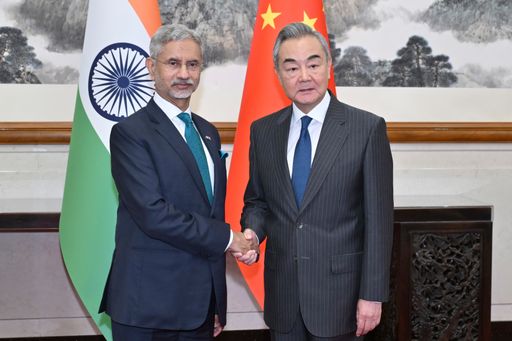White House trade adviser Peter Navarro has said that India's purchases of Russian crude were funding Moscow's war in Ukraine and had to stop, adding that New Delhi was "now cozying up to both Russia and China."
"If India wants to be treated as a strategic partner of the US, it needs to start acting like one," Navarro wrote in an opinion piece published in the Financial Times on Monday with title "India’s oil lobby is funding Putin’s war machine — that has to stop".
US President Donald Trump an additional 25 percent tariff on Indian goods earlier this month, citing New Delhi's continued purchases of Russian oil, taking total tariffs on imports from India to 50 percent, starting from August 27.
"American consumers buy Indian goods," Navarro wrote. "India uses those dollars to buy discounted Russian crude."
"This two-pronged policy will hit India where it hurts — its access to US markets — even as it seeks to cut off the financial lifeline it has extended to Russia's war effort," Navarro added.
In 2021, India imported negligibly from Russia, relying more on the Middle East. Currently, Russia accounts for about 37 percent of imports.
"This surge has not been driven by domestic oil consumption needs. Rather, what really drives this trade is profiteering by India's Big Oil lobby," Navarro added. "In effect, India acts as a global clearinghouse for Russian oil, converting embargoed crude into high-value exports while giving Moscow the dollars it needs."
The Trump aide also criticised Indian oil magnates and their links to Prime Minister Narendra Modi's government. Reliance Industries Ltd., owned by Mukesh Ambani, has purchased Russian crude under long-term contracts.
"The proceeds flow to India's politically connected energy titans, and in turn, into Vladimir Putin's war chest," Navarro said.

India 'cozying up to' Russia, China
The adviser also said it was risky to transfer cutting-edge US military capabilities to India as New Delhi was "now cozying up to both Russia and China."
"India continues to rely heavily on Russian military hardware, with Russia supplying roughly 36 percent of India's total arms imports between 2020 and 2024. While India has increasingly turned to the US, France and Israel to meet its defence needs, those deals often come with strings attached," he said.
"For example, India has routinely demanded that US companies transfer sensitive military technology and build factories on Indian soil as a condition of sale. That blunts any benefit to reducing America's trade balance while it also risks transferring cutting-edge US military capabilities to an India now cozying up to both Russia and China."
Navarro said the Biden administration largely looked the other way at this "strategic and geopolitical madness."
"The Trump administration is confronting it," he said.
India's Foreign Ministry has previously said the country is being unfairly singled out for buying Russian oil while the United States and European Union continue to purchase goods from Russia.
In a recent statement, India's Foreign Ministry said New Delhi began importing from Russian because traditional supplies were diverted from Europe after the outbreak of the conflict.
"However, it is revealing that the very nations criticising India are themselves indulging in trade with Russia. Unlike our case, such trade is not even a vital national compulsion," it said, adding US was importing "Russia uranium hexafluoride for its nuclear industry, palladium for its EV industry, fertilisers as well as chemicals."

Chinese top diplomat in India
Longtime rivals China and India are quietly and cautiously strengthening ties against the backdrop of Trump's unpredictable approach to both.
Indian Prime Minister Narendra Modi is set to meet Chinese President Xi Jinping at the end of the month while Chinese Foreign Minister Wang Yi is in India for talks on the disputed border between the two countries.
Yi held talks with his counterpart Subrahmanyam Jaishankar, and is also expected to meet Modi during his three-day visit to New Delhi.
India's Foreign Ministry said on Monday in a social media post that "important engagements of the India-China Special Representatives and on bilateral relations" were scheduled over the next two days.
A planned visit by US trade negotiators to New Delhi from August 25-29 has been called off, a source said over the weekend, delaying talks on a proposed trade agreement and dashing hopes of relief from additional US tariffs on Indian goods from August 27.




















